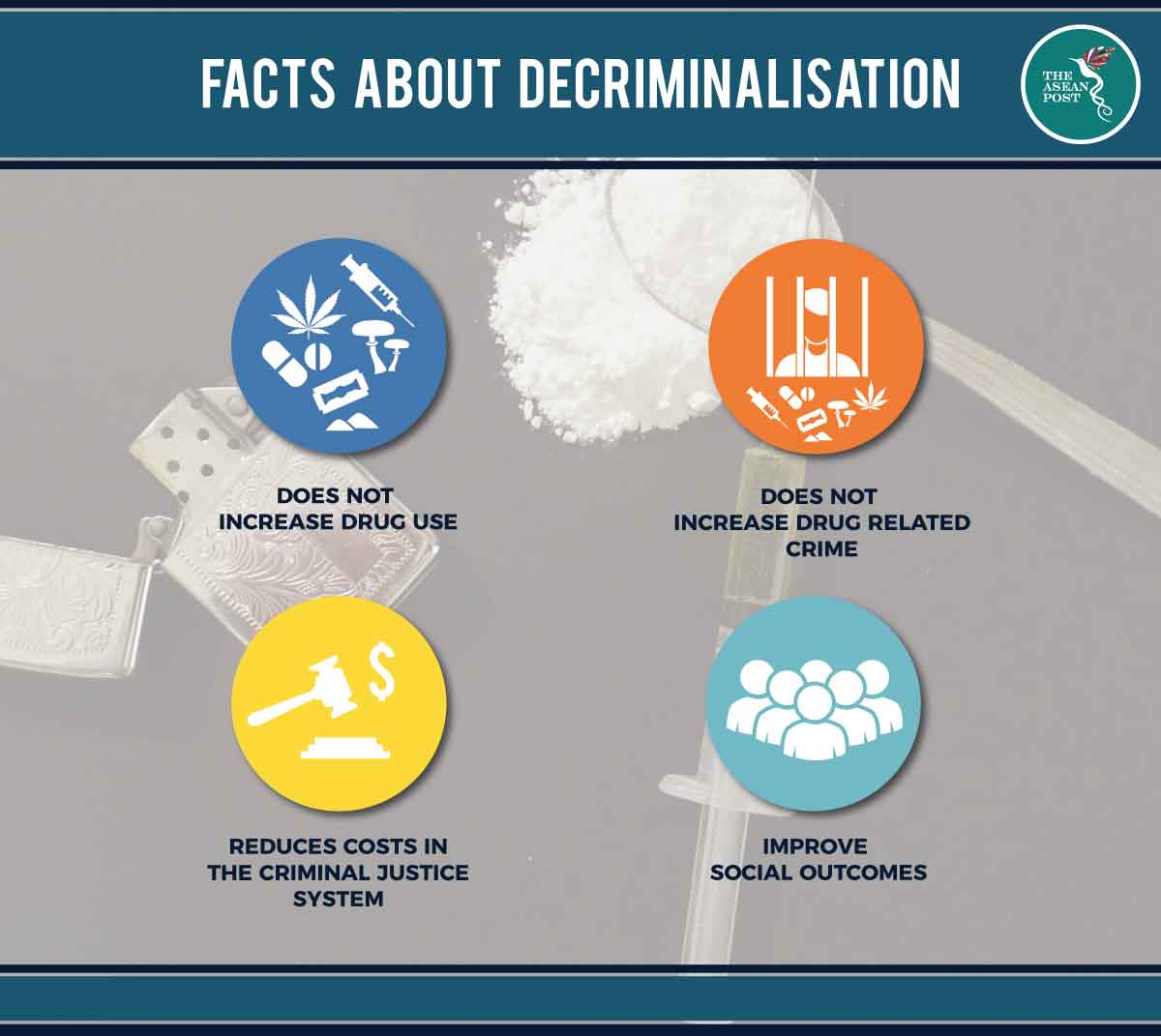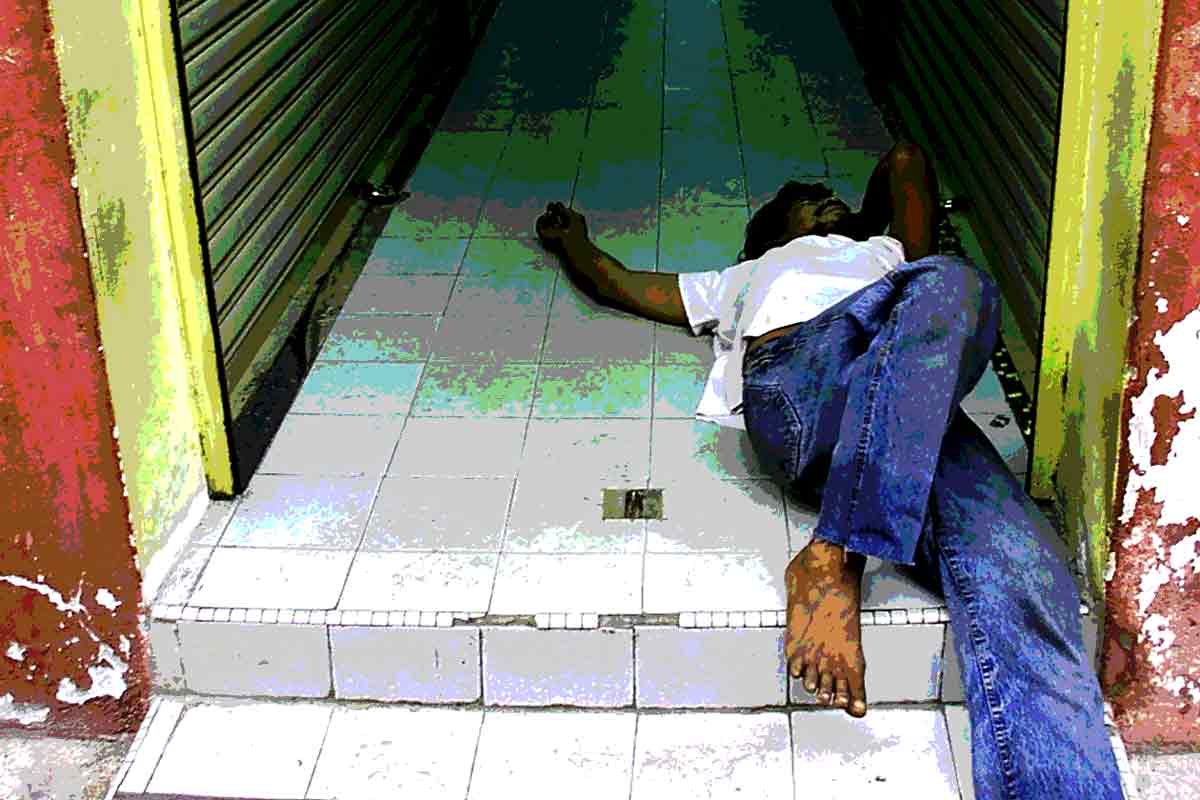Malaysia’s plan to become the first ASEAN country to decriminalise the use and possession of small quantities of drugs for personal use must go hand-in-hand with public awareness programs and on the ground work by non-governmental organisations (NGOs).
While the Malaysian public may think drugs will now be sold openly if this landmark decision is implemented, this is simply not true. Decriminalisation means criminal penalties for small amounts of possession are either abolished or not enforced while the production, sale or supply of drugs remains a criminal offence. On the other hand, legalisation means all penalties previously related to drug use and possession, production and sale are abolished.
Drug convictions have steadily risen over the years, a clear indication that Malaysia’s current criminal justice approach to drugs has failed. Acknowledging that drug addiction is a medical condition and not just a matter of “someone having weak will power”, Health Minister Dr Dzulkefly Ahmad has become the latest in a string of Malaysian ministers expressing their support for decriminalisation – saying last week that it is the next step to achieving a “rational drug policy that puts science and public health before punishment and incarceration”.

Decades of research has proven that decriminalisation has vast societal and financial benefits. By keeping drug users out of the criminal justice system and allowing them to continue being productive members of society, decriminalisation also prevents them from entering a vicious cycle of imprisonment and poverty. More than 30 countries have decriminalised drugs, and research has shown that it does not increase drug use or drug related crimes – instead reducing costs in the criminal justice system and keeping families and communities intact.
From a cost perspective, Malaysian taxpayers can cut down on the US$580,000 the government had to fork out daily to house its 65,222 inmates in 2017. As of last October, around 35,000 of that number were behind bars for drug related offences other than drug trafficking – a crime that carries the death penalty in Malaysia.
Stressing that drug addicts should be treated as patients and not criminals, Dr Dzulkefly was quick to point out that the public should not mistake decriminalisation for legalisation – and this is where advocacy groups and NGOs have a crucial part to play in informing the public about the differences and breaking down long-held negative stereotypes about drug users.
“Basically what this (decriminalisation) means is that it won’t be a criminal offence. A lay person may think drugs are being legalised – but that’s not the case,” said Dr Vicknasingam Kasinather, Director of the Centre for Drug Research at Universiti Sains Malaysia in an interview with The ASEAN Post.
“It’s not going to be a rock-and-roll party!
“There is definitely a lot of advocacy work to be done with NGOs to make sure the public understands what’s going on. Government resources are limited so we need to work with NGOs as they have feet on the ground. The health sector also has to work with the AADK (National Anti-Drug Agency), who have a big role to play as they are the ones with trained counsellors to deal with drug abuse.
“From my experience, once people look at drug users from a medical point of view… They understand that addiction is a mental health problem. We need a system that will refer users to treatment centres, not jails,” he stressed.
Government support
Speaking to Malaysian media in January, Malaysia’s de facto Law Minister Liew Vui Keong said the government would look to redefine “dangerous drugs” and decriminalise certain drugs considered to be “dangerous”.
A few days before Dr Dzulkefly’s statement, Malaysia’s Home Minister Muhyiddin Yassin said drug addicts in Malaysia should no longer be viewed as criminals who must be punished but as patients in need of treatment and rehabilitation – this coming after discussions between the Home Ministry and the Health Ministry which agreed to implement decriminalisation and a harm-reduction program.
Even as far back as 2013, Liew’s predecessor Nancy Shukri noted that the country was making efforts to decriminalise drugs but had not formalised any policies.
In a region known for some of the toughest anti-drug laws in the world, Malaysia’s bold plan goes against the status quo – but is in line with international standards.
Critics’ fears haven’t materialised
United Nations (UN) agencies such as the World Health Organisation, the United Nations Development Programme and even the United Nations Office on Drugs and Crime have all expressed the need to decriminalise the possession of drugs for personal use.
Release, the United Kingdom’s centre for expertise on drugs and drug laws, analysed over 25 jurisdictions around the world that have decriminalised drugs and found that despite critics’ fears of a surge in drug use, the 2016 report stated that these concerns have simply not been borne out in the evidence – with drug laws revealed to have a negligible effect on drug use levels.
The report went on to state that law-enforcement agencies spend an estimated US$100 billion annually to combat drugs – resulting in mainly the incarceration of low-level, non-violent drug offenders as opposed to organised crime syndicates which traffic drugs. The report also stated that 83 percent of all drug-related offences worldwide are simple possession offences.
Exact details of Malaysia’s proposed policy change are yet to be announced, and it is also uncertain whether the government there will have the political will and secure Parliament’s approval to push through any new laws. Resistance from ASEAN – which has a firm anti-decriminalisation stance – and concerns from neighbouring Singapore – whose Law and Home Affairs Minister last year said calls for decriminalisation were “reckless, irresponsible, ... a cop-out and ... a step backward” – are other barriers which Malaysia might face.
But with the current zero-tolerance approach based on the United States (US)’ “War on drugs” policy clearly not working, it is obvious that Malaysia has to put more thought into looking at drug users from a public health perspective rather than from the criminal justice perspective – and free up the police’s time to catch the real criminals.
Related articles:
